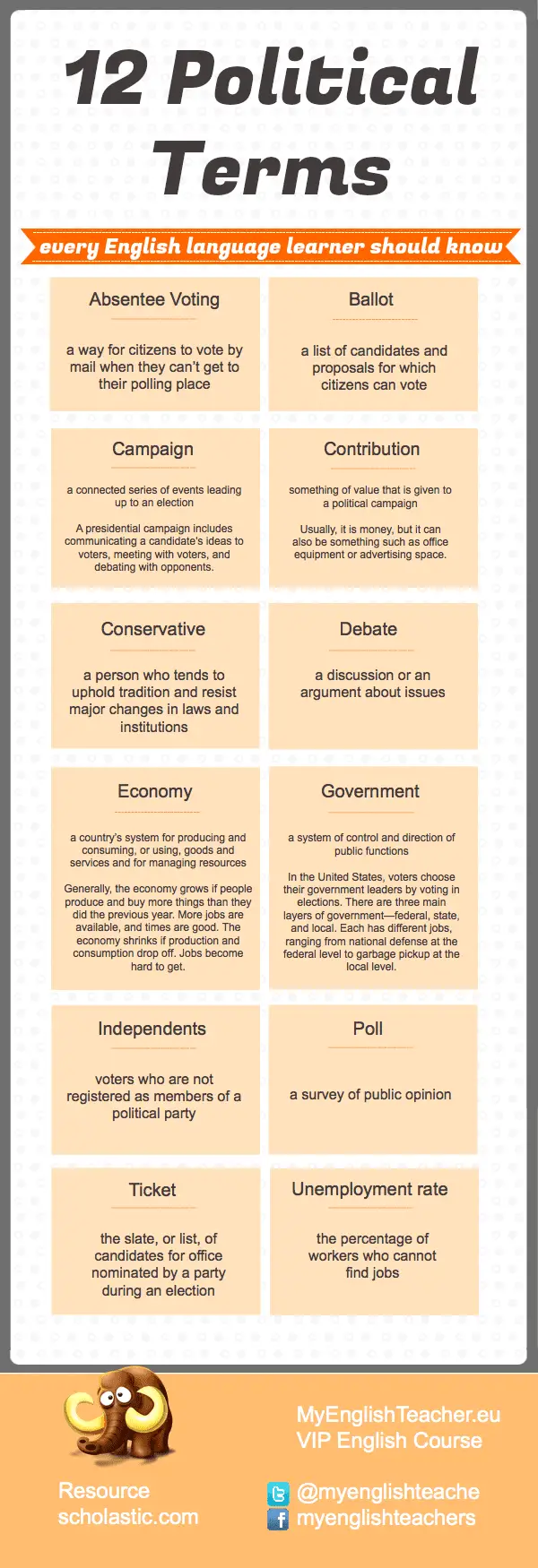Understanding political terms is crucial for every citizen as politics affects our lives in various ways. This article focuses on ten political terms that everyone should be familiar with, including democracy, republic, constitution, bureaucracy, political party, lobbying, campaign finance, gerrymandering, impeachment, and foreign policy. Democracy and republic refer to different forms of government, while bureaucracy is a system necessary for law enforcement and public health and safety regulations. Political parties work to nominate candidates for public office and advance their ideology and policy goals, while lobbying seeks to influence government decisions on behalf of corporations, labor unions, and nonprofits. Campaign finance laws regulate the funding of political campaigns to promote transparency and prevent corruption. Gerrymandering, impeachment, and foreign policy are other terms discussed in the article, providing an overview of essential political concepts for citizens participating in political discussions and debates.
10 Political Terms Every Citizen Should Know
Politics is an essential aspect of our lives, and it affects us in various ways. Understanding political terms is crucial for everyone to participate confidently in political discussions and debates. This article will provide an overview of ten political terms that every citizen should know.
1. Democracy
Democracy is a system of government where power rests with the people. In a democratic country, people have the right to vote and elect their leaders. A democracy guarantees freedom of speech, and citizens can criticize the government publicly without fear of punishment.
2. Republic
A republic is a form of government where the citizens elect representatives to make decisions on their behalf. The United States is a federal republic, and citizens vote for their representatives in Congress, state legislatures, and the President.
3. Constitution
A constitution is a set of principles that establishes the fundamental rights and laws of a country or state. The United States Constitution outlines the powers of the federal government, the rights of the citizens, and how the government operates.
4. Bureaucracy
A bureaucracy is a system of government where decisions and policies are made by a large group of officials. Bureaucracies are often criticized for being inefficient and slow-moving, but they are a necessary part of government for carrying out tasks such as law enforcement, licensing, and public health and safety regulations.
5. Political Party
A political party is an organization that seeks political power by nominating candidates for public office. Democratic and Republican parties are the two major political parties in the United States. Political parties usually have different ideologies and policy goals, and they work to promote their agenda through elections and legislation.
6. Lobbying
Lobbying is the act of attempting to influence decisions made by the government. Lobbying can include meeting with lawmakers, testifying in front of Congress, or providing research and information to policymakers. Lobbyists work on behalf of groups such as corporations, labor unions, and nonprofits to promote their interests in government decisions.
7. Campaign Finance
Campaign finance refers to the funding of political campaigns. Political candidates need money to run their campaigns, and the rules about how much money they can receive and spend are regulated by the government. Campaign finance laws aim to prevent corruption and ensure transparency in political spending.
8. Gerrymandering
Gerrymandering is the practice of manipulating the boundaries of voting districts to benefit a particular political party. Gerrymandering can be used to concentrate voters of one party in a single district, making it easier for the other party to win in all the other districts. Gerrymandering is a controversial practice, and some argue that it can lead to unfair election results.
9. Impeachment
Impeachment is the process of charging and removing a public official from office. The President, Vice President, and federal judges can be impeached for committing high crimes or misdemeanors. Impeachment is a rare occurrence, and it requires a majority vote in the House of Representatives and a two-thirds vote in the Senate.
10. Foreign Policy
Foreign policy refers to a government’s strategy and actions regarding other countries. Foreign policy issues can include trade agreements, military alliances, and international diplomacy. A country’s foreign policy aims to protect its interests and promote its values on the global stage.
Conclusion
There are many political terms that you should be familiar with if you want to participate in political conversations and understand how your government works. The ten terms discussed in this article are just the beginning, and there are many more to explore. Remember to stay informed and engaged in the political process, and always ask questions if you need clarification on a term or concept.
